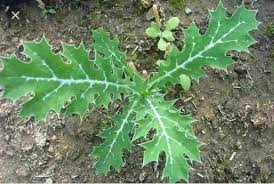In India, there are several notable organizations and stores that focus on providing seeds for agriculture, gardening, and conservation. Here’s a list of key seed stores and suppliers in India:
 |
| Worldwide Seed Banks |
Website: icar.org.in
Description: ICAR manages a network of seed banks and provides a wide range of seeds for various crops through its affiliated research institutions.
Website: nationalseed.in
Description: NSC is a government organization that produces and distributes quality seeds of different crops across India.
Nagarjuna Fertilizers and Chemicals Limited
Website: nagarjunafertilizers.com
Description: Offers a range of seeds for crops, along with fertilizers and agrochemicals.
Mahyco (Maharashtra Hybrid Seeds Company)
Website: mahyco.com
Description: A leading seed company in India, specializing in hybrid seeds for various crops, including vegetables and grains.
Bayer CropScience
Website: bayer.com
Description: Provides a wide range of seeds for crops, including corn, soybean, and cotton, with a focus on innovation and biotechnology.
Website: rallis.co.in
Description: Offers seeds for a variety of crops, including cereals, pulses, and oilseeds.
Online Seed Stores:
Green My Life
Website: greenmylife.in
Description: An online store offering a wide range of seeds for vegetables, flowers, and herbs, along with gardening supplies.
Jammu and Kashmir Medicinal Plant Introduction Centre
Website: https://jkmpic.blogspot.com
Description: Specializes in gardening products, including medicinal plants, forest seeds for vegetables, flowers, and herbs, with delivery across Jammu and Kashmir.
Seedball
Website: seedball.in
Description: Provides eco-friendly seed balls for planting, including a variety of native plant species.
Website: indusseeds.com
Website: thegreencompany.in
Description: Offers seeds for organic gardening, including vegetables, herbs, and flowers.
Community and Specialty Seed Suppliers:
Seed Savers Network India
Website: seedsaversnetwork.in
Description: Focuses on the preservation and distribution of heirloom and traditional seeds.
Vrikshayurveda
Website: vrikshayurveda.org
Description: Provides traditional and organic seeds, along with resources for sustainable agriculture.
The Jammu and Kashmir Seed Bank
POB 40 GPO, Srinagar, Kashmir, JK 190001
WhatsApp/Telegram: 9858986794
Ph: 01933-223705
e-mail: jkmpic@gmail.com










